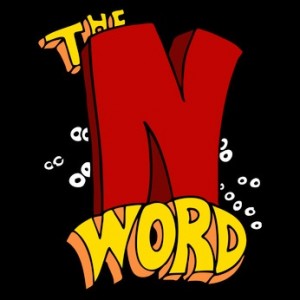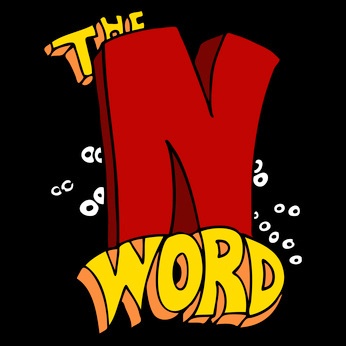 A while ago Dr. Laura Schlessinger caused a furor when she used the “N” word on her radio show. Actually, she used it over and over, in the process of making her point. It was politically incorrect in the extreme, of course, and she was vilified.
A while ago Dr. Laura Schlessinger caused a furor when she used the “N” word on her radio show. Actually, she used it over and over, in the process of making her point. It was politically incorrect in the extreme, of course, and she was vilified.
Almost immediately, she apologized. But during the show, and in the inevitable postmortem interviews, she raised a valid question: Who gets to use the “N” word?
Let me insert here that I’m white and my husband is black.
Most white people I know automatically recoil at the word. Over the past forty years, it’s been forced out of general usage. Nowadays, if you’re a white adult and you say the word, you’re outing yourself as a racist.
I did a lot of my growing up in Texas before integration. All around me, the word was in constant, casual use. It both described and perpetuated the widely held, deep-seated belief that black people were inferior.
For me, the “N” word is shorthand for all the racism I saw growing up. I once heard a black man my age lecture some teenagers who were using it, saying “You all are tearing down everything the people before you suffered for.” For him, like many black people of my generation, the word is anathema.
But for most young black people, it’s just a word.
I understand the argument: Words themselves carry no weight. It’s the meaning we ascribe to them that is significant. I actually used that reasoning to explain to my horrified parents why in my twenties, I and my friends started throwing around the “F” word. It’s just a word, right?
My husband also hates the “N” word. We discourage our kids from using it. Still, I hear it all the time. One of the girls, hanging out in her bedroom with some of her friends or talking on the phone, will say, “That n***** done lost his friggin’ mind.” (Inevitably, when the word comes into the room, standard English goes out the other door.) I don’t like it, but I figure they’re the ones who get to decide whether they use it.
Nevertheless, when I heard my new little grandson’s father talking to him on the phone, calling him “my little n*****,” I freaked. It took everything I had not to grab the phone and explain to him all the ways that was wrong, wrong, wrong.
Our son, Matt, who was raised by my husband but is not black, moves easily back and forth between both worlds. (Our friend Van calls him an “honorary brotha.”) Matt doesn’t use the word, but most of his black friends do. He believes it’s about flipping the context, about empowerment.
Maybe that’s true on some level, but I wonder what percentage of kids using the word could tell you about Selma, Alabama, or what happened in Birmingham.
I’m a writer and a lover of words. It’s out of character for me, but accurate, to say I wish that particular word would disappear. Yet I recognize that, since I was the never the target of the word (although I have been called a n****-lover), I have only limited standing. I don’t get to decide this question. And it looks as though the word is not going away anytime soon.
What do you think?

I think it’s up to each individual. To some it’s not negative, to many it is. Who you hang out with will determine whether it’s negative or not.
I do think talking nicely is better, but sometimes in order to make a point you have to use some colorful language to make people notice. I don’t think this word though is one of them. Selma and Birmingham times were a long time ago for young people, I was out in the middle of nowhere in Alaska and missed those times entirely. But that word has a history that still lives with us and is best left in the history books.
I was wondering: given that the “N” word is so offensive for white people to use (and I know it is and don’t use it myself) why is it okay for black people to use?
I personally think it’s important to let language evolve as a living organism. Much like gay no longer means happy, it’s part of the fun of language to have words shift. I make the decision whether to use colorful words based on the audience (and my personal intention and desired effect) if I am aware of a preference. I find that asking is the best option, generally speaking, rather than expecting a single rule applying to everyone. Same with the f-bomb – some people are totally offended and others not at all. To me, the n-word means a subordinate, someone required to do your bidding without proper recognition or respect, and I will occasionally use it if, for example, a client is being dismissive or my value. Sometimes people want to treat you like a n-word and I don’t like that (who does, right?). Never had the occasion to use it in a positive way like I have heard it used but I certainly support people using that way if they wish.
I like how Tim Minichin sees it too….http://www.youtube.com/watch?v=f0IVuGK7sAw (a touch of levity…)
Nice post Jillian. I think your son Matt probably has it right-about empowerment. Meanings of words (and symbols for that matter) do seem to change with the times. Living our deepest truth will determine what words we choose to cherish or let go. I am with you, that word does not express any deep truth I have accepted. For others, who knows?
Good Stuff – Glad Allison shared on FB.
Personally, the word has a hateful connotation. I don’t feel like it is ours to use because it is heavy with lots of horrible history when it is uttered from a white person’s mouth. I would really prefer that no one uses it but I am still waiting for the world to halt to my preferences. But you can’t deny that it has a different feel to it when coming from young black people, usually surrounded by other slang.
I agree, Steph. The energy is definitely different when the word is used casually by young black people. I’m really enjoying the feedback to this post, especially from people younger than I am. I know my feeling about the word has a charge because of my own personal history.
From one ginger to another, Vicki – I love Tim Minchin’s humor. Thanks for sharing that link!
The n word is dead. Or, at least, it’s use reflects so poorly on the user it might as well be dead. F bombs now there’s a problem. F bombs are destroying what civility we have left.